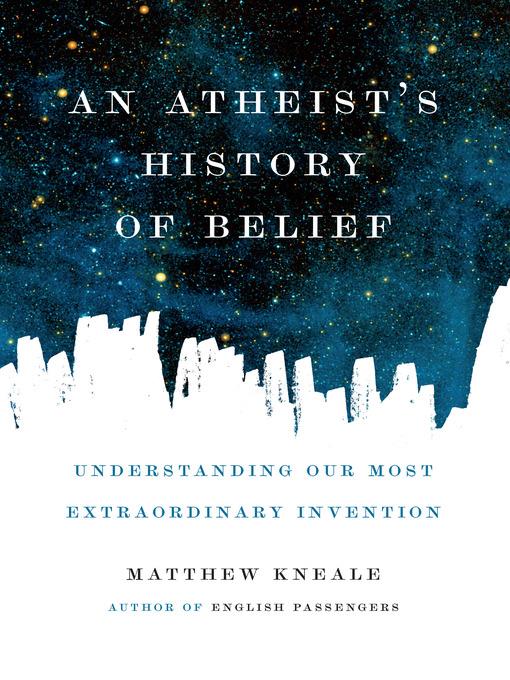
An Atheist's History of Belief
Understanding Our Most Extraordinary Invention
کتاب های مرتبط
- اطلاعات
- نقد و بررسی
- دیدگاه کاربران
نقد و بررسی

January 20, 2014
Yet another atheism title attempts to make the reader “forget Dawkins or Hitchens,” as this book’s publisher suggests, and render skepticism understandable. And British writer Kneale accomplishes just that in his lively look at the history of religious belief, from ancient humanity to the 20th century. The author succeeds not because he formulates sharper theories or ideas about non-belief, but because he barely mentions non-belief at all. Where other authors, like those apostles of atheism, Dawkins and Hitchens, have become bestsellers by condemning religion and haranguing its followers, Kneale takes a more gentle, reasoned approach. He views religion as the invention of cultures seeking to assuage their various fears and insecurities. That’s not a new tack— scholars have long studied religion in the context of its inventors’ needs and aspirations. But Kneale, a novelist whose English Passengers (2000) was shortlisted for the Man Booker Prize, brings to this angle a storyteller’s, rather than an academic’s, touch. It’s a pleasant read, just not a very hardline atheistic one. Agent: Deborah Rogers, Rogers, Coleridge & White Literary Agency.

December 15, 2013
An atheistic novelist temporarily abandons his fiction to examine the roots and history of belief. Love them or hate them, the atheist intelligentsia, led by people like Richard Dawkins and Christopher Hitchens, have always loved to court controversy. Their analysis is often accusatory, their tone overt and their flogging of controversy laden with political agenda. Strange, then, to run across this nonbeliever, Kneale (When We Were Romans, 2008, etc.), who takes such an overwhelmingly polite look at religious history that there's little to rage about. This isn't by any means a personal journey; while the author gives a mild introduction to himself as the son of a Methodist atheist and a refugee German Jewish atheist, he doesn't paint the history of faith with a personal patina. Instead, he methodically examines the development of specific aspects of faith through historical events, ancient texts and the commonality of the human condition. While it begins with primordial religions and touches on variants like the ancient Mayans, the book eventually lands squarely in the Mideast. However, it's not exactly a traditional takedown of a generic Christianity. Kneale touches on a range of faiths including Hinduism, Judaism, Islam and Scientology. Various chapters find the author seeking out the roots for the invention of a Christian heaven, prophecies of the end of the world, and the unkind ends of heretics and witches. The ultimate answer the author seems to find is that religions are created out of that fundamental fear of being a human being, all alone and afraid of the dark. "So I suspect there will be a few more invented worldviews," he writes. "What fears will they answer? This will depend on us. It will depend on how safe our world feels." An intellectually interesting comparison in the same way that comparative histories of revolutions are interesting; there's blood and passion in all that madness, but it doesn't always land on the page.
COPYRIGHT(2013) Kirkus Reviews, ALL RIGHTS RESERVED.

























دیدگاه کاربران